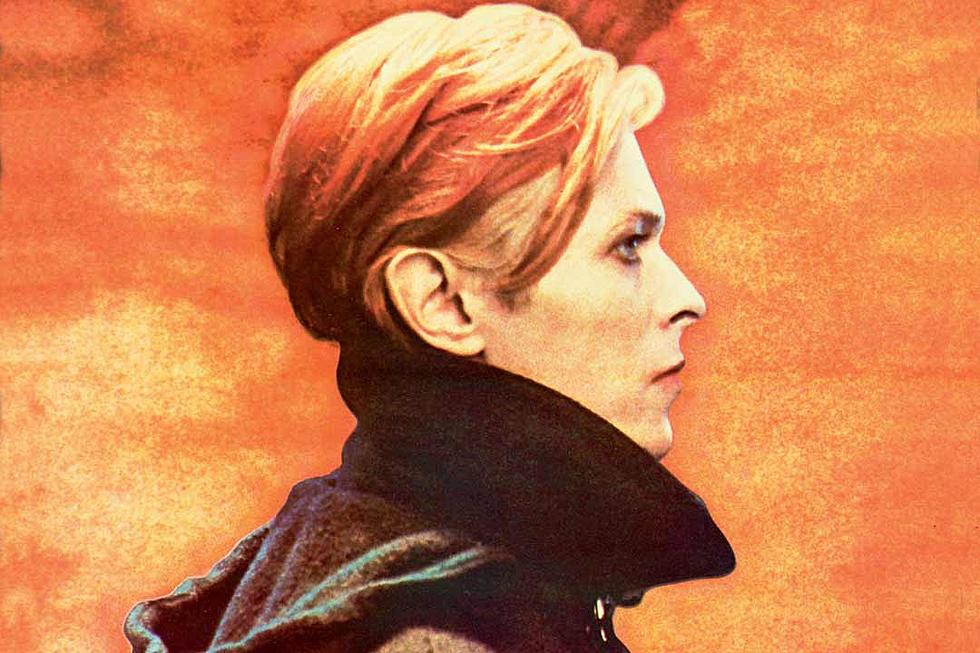
How David Bowie Cleaned Up and Branched Out on ‘Low’
David Bowie was a mess in 1976.
His previous two albums – 1975's Young Americans and, especially, the following year's Station to Station – were recorded under a heavy influence of drugs. The Thin White Duke period of Bowie's career had literally and physically taken over his life, with his slim, gaunt appearance the result of the copious amounts of cocaine he was inhaling at the time.
Bowie, whose mental and financial conditions were no better off, realized he was headed for a major crash, and made a life-altering decision to get clean. So, along with pal Iggy Pop, he moved from Los Angeles to Switzerland, and then to Berlin in late 1976, to kick his bad habits. The new location not only straightened him out, it also reinvigorated him creatively.
Soaking in the sounds of German electronic bands like Kraftwerk and Neu!, Bowie – along with Pop, producer Tony Visconti and former Roxy Music keyboardist and ambient-music enthusiast Brian Eno – began to work on material that would shape and define one of the most fertile and exciting chapters of an ever-shifting musical career. (Pop's solo debut, The Idiot, which Bowie produced, was conceived at this time too.)
Low marked the start of Bowie's Berlin Trilogy when it was released on Jan. 14, 1977. "Heroes" would follow in October, with Lodger completing the collaborations between Bowie and Visconti, who co-produced the albums, and Eno, who co-wrote songs and played synths with Bowie and was the period's spiritual architect, in 1979. Even though some of Low's tracks were recorded in West Berlin, much of the album was made near Paris. "Heroes" was recorded entirely in Berlin, however, and Lodger was put together in Montreux, Switzerland, and New York City.
But the inspiration and influence were clearly from Berlin. The electronic avant-pop and art-rock found on Low weren't a huge shift for Bowie; Station to Station tinkered in a somewhat similar environment. But the album's thematic foundation was risky. Side One was made up of seven songs – some fragments, some even less finished – filtered though a sense of pop minimalism. The best of them ("Sound and Vision," "Be My Wife") were Bowie gliding into another phase of a career that rarely stayed in one place for too long.
Listen to David Bowie Perform 'Sound and Vision'
Side Two is where things got weird. Four songs, clocking in at 19 minutes, unfolded as a mostly instrumental suite that had more in common with Eno's ambient milestones Discreet Music and Another Green World than Ziggy Stardust. The side's opener, "Warszawa," in particular, was a stunning piece of music that played out like an audio art project over six and a half ghostly minutes.
Together, Low's 38 minutes add up to one of the most significant albums in Bowie's long career. It's certainly the most adventurous and forward-looking. Traditional rock elements are mostly missing from the work, which sounds as out of time today as it did then. Upon its release, no mainstream artist had dared to issue an album so ahead of its time; its influence in the 21st century continues to grow as everyone else catches up to Bowie's sounds and visions.
In a way, Bowie got clean by wiping clean his past on the noisy and chaotic Low. Lyrically, he probes the pieces of his shattered life and mind; musically, Eno's arsenal of keys and synths paved the way for an era that was as exciting as it was challenging. Low can be a disjointed listen between the two dissimilar, and polarized, sides, but it's rewarding nonetheless.
The album reached No. 11, no doubt helped a bit by Station to Station's No. 3 peak – Bowie's highest-charting album until his late-career debuts of The Next Day and Blackstar, which hit No. 2 and 1, respectively. "Heroes" stalled at No. 35, Bowie's worst showing since The Rise and Fall of Ziggy Stardust and the Spiders From Mars made him a star in 1972 – a fallout from its complex predecessor.
But Bowie was rarely one to put commerce above art. And the Berlin Trilogy stands as his most compelling artistic statement, a glimpse into a future that was still decades away. The seeds for the trilogy were planted in many things: krautrock, drugs, Station to Station, Bowie's movie career and new beginnings. Low remains its crowning achievement.





